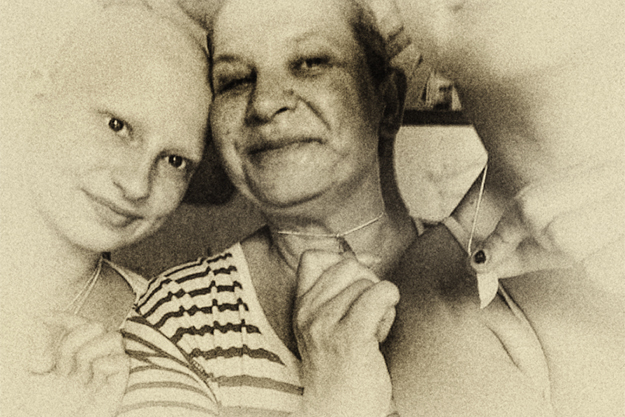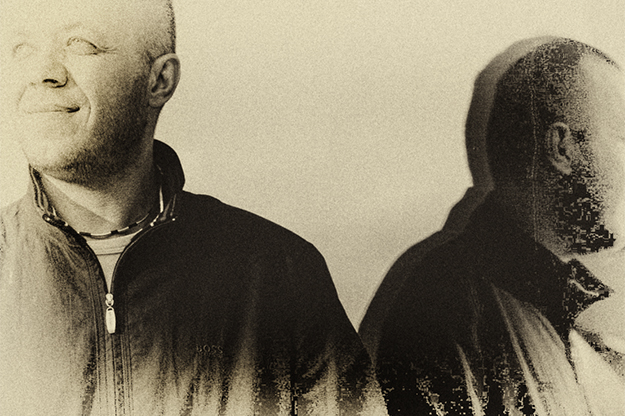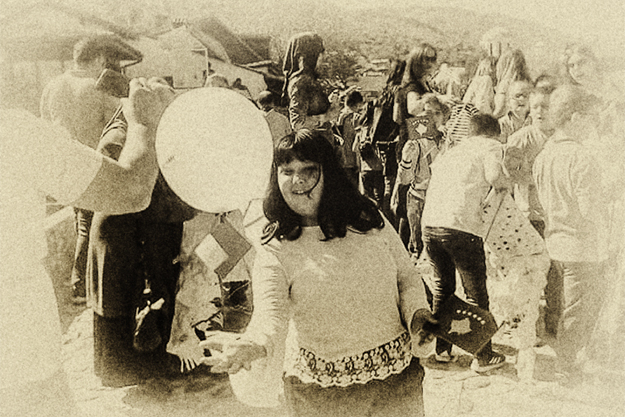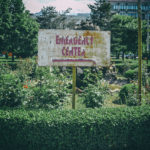For citizens of Kosovo, suffering from a serious health issue can be compounded by multiple factors. The lack of capacity in the health system to provide certain treatments often means travelling to hospitals abroad, leading to travel and visa complications, alongside huge medical bills.
“The only thing she cried for were the funds,” recalls Xheraldina Rexhepi, becoming emotional. “She used to suffer that part so much, because she was convinced that she was in a hospital where she would be cured, but did not know whether the funds would be raised.” She pauses for a while, then emphasizes it again: “She suffered that part very much.”
Rebeka had been ill for three months before she received her diagnosis. It might be flu, said one doctor, or her pancreas, said another. Mother and daughter roamed hospital halls until they got the dreadful news. “The moment when my daughter’s diagnosis was communicated to me, all I had was 70 euros, and that was in dollars — a 100 dollar bill that was a gift from her father,” Rexhepi says.
Despite her horror, Rexhepi received calls from some of her friends who told her not to worry about money, and to just find a proper hospital for treating her daughter. “But of course I was worried!” Rexhepi says. “It was one of my greatest fears, and after I found the hospital, my only fear.”

With Rebeka Rexhepi requiring expensive treatment abroad, friends of her mother Xheraldina began a fundraising campaign to help cover the family’s medical bills, which in the end totalled over 300,000 euros. Photo courtesy of Xheraldina Rexhepi.
But her friends did not stop there, they started a fundraising campaign, which Rexhepi followed from time to time. “If I had known in the beginning how much money I would need, maybe I would never have had the strength to start,” she says. The total amount for treatment at that hospital, the bill for which she recently received, “was around 300,000 euros.”
Campaigns to raise funds for treating Rebeka outside the country were initiated by lots of people, young and old, famous and unknown, companies and individuals, but they all had one thing in common: All the money had to be sent to the official bank account. No money was to be given by hand.
In one instance, Rexhepi heard that a young man was taking a kid by the hand and going door to door to ask for money in the name of Rebeka. “He was not a bad boy, he was just a drug addict,” Rexhepi says. She found out who he was and wrote to him, after which he stopped.
“We were helped by the whole of Kosovo who gathered around 50,000 euros,” Rexhepi summarizes. “But I have to say that we were mostly helped by friends and family. For example, if in Europe 3,000 euros were collected, 2,800 of them were from friends and family.”
The Kosovar state has also set up a program called The Program for Medical Treatment Outside of the Public Health Service, where a panel comprised of three doctors decides whether to give financial assistance for treatment in a private clinic, whether in Kosovo or abroad, and what percentage of the fund should be allocated.
“The first time we got 100 percent of the [available] fund, which is 30,000 and the second time was 60 percent, meaning 18,000,” recalls Xheraldina. “But the first push was from people very close to me, who gave me funds and asked that no one knows about it.”
The fundraising never stops…
Though most of the fundraising for Rebeka’s health care costs took place nearly five years ago, this process of having to publicly fundraise to help pay for medical treatment is still a common feature in the present day. The first few months of 2018 have seen a number of public campaigns aimed at providing support for those facing huge medical bills.
One such case has taken the form of a series of fundraising events organized by the artistic community for Bekim Lumi, a theater director and a professor in the Academy of Arts. The campaign has included parties, auctions of artistic works, theater plays and an online campaign centered around a Gofundme page.
“It’s now almost two years that Bekim has been coping with cancer, and for a long time he did not want it to be publicized,” says Jeton Neziraj, a colleague and friend of Lumi, and also a member of a small group of artists who are trying to steer the fundraising campaign. “Until this January, he was dealing with it by himself, with help and support from his family and friends who volunteered.”
Lumi recently started a more intensive chemotherapy program, which Neziraj describes as “super expensive,” revealing the costs to be around 10,000 euros a month. As grim as the financial situation had become, Lumi was still reluctant to go public, and Neziraj confesses that they acted without his blessing.

As well as raising funds for his treatment, the campaign to help theater director Bekim Lumi has also helped unite Kosovo’s sometimes fractious art scene. Photo courtesy of Bekim Lumi.
“We began the campaign in a more internal manner, which meant sending emails individually,” Neziraj recalls. While the response to this localized campaign failed to generate much revenue, the news of the director’s health issues were leaked into the media, meaning the campaign “almost accidentally took the direction in which we wanted to steer it.”
By this time, although Lumi still disapproved of the campaign, he inadvertently made another great contribution to the Kosovo art world, uniting an at times fractious artistic community together in the name of a common goal.
“A community that is fragmented, alienated, and even quite hostile came together for a humane cause,” Neziraj says. “It was really fascinating for me to see not only artists but also people from other backgrounds getting together to give their contribution, and to think of ways of organizing different events, which had the fundraising campaign in mind.”
Neziraj considers the campaign to have been very successful. He believes that enough funds have been raised, and if need be, he is sure that another similar campaign will have the same desired outcome.
Solidarity covering costs
Successful campaigns are not just the preserve of those who are well known in society. Two recent fundraising campaigns seem to suggest that, regardless of the patient, the solidarity that kept a parallel state running in Kosovo in the ’90s is still alive and well.
Earlier this year, a young man from Vushtrri, Qendrim Aliu, required expensive surgery in Turkey, after suffering a rare form of cancer that had manifested on his face, causing deformities. A plea made in early May by Aliu’s family circulated across news portals and was widely shared on social media. Within three days the family had received all the necessary funds, around 200,000 euros. Two days later Aliu was flying to Turkey to receive treatment.
An even more recent case is that of Sara Hana Kitmir, an 11-year-old girl from Prizren who urgently needs an operation on her hip and spine. Her father, Hilmisellasi Kitmir, recounts the story of her misfortune, and his efforts to find a solution for her suffering.
“I’ve known that my daughter [has a medical issue] since she was 3 months old. When we put her in the baby walker, we saw that one of her legs was shorter,” recounts Kitmir. “When we went to the doctor he said that the leg is 3 centimeters shorter.” An operation at that time was possible, but it cost 4,000 euros, which the family did not have.
As Sara grew up, walking meant that she was putting pressure on the other leg, and both hips started causing her pain in her joints and back. Kitmir says that over the years her health has progressively deteriorated, and now she is unable to walk more than 10 meters without resting, while her spine is suffering escalating deformation.

Sara Kitmir’s urgent need for an operation led to another fundraising campaign focussed in Prizren. Photo courtesy of Hilmisellasi Kitmir.
Alongside financial concerns, Kitmir had other reasons for not operating on his daughter sooner. Eight years ago he was warned that the complicated required surgery comes with a risk of causing paralysis if a nerve in the spinal axis is displaced. Kitmir knows first hand the agony of paralysis, as his brother was paralysed from birth, and he feared the same fate for his daughter.
However, the opportunity for the surgery to be performed in Turkey has arisen, which, due to an advancement in technology, offers a far smaller risk of complications but at a higher price, up to 16,000 euros. Kitmir applied to the Program for Medical Treatment Outside of the Public Health Service, where he was granted funds but was also warned that they may take some time to materialize as there was a long waiting list.
As the need for his daughter’s surgery grows more urgent by the day, Kitmir sought other means to raise the money for his daughter. It was then that he encountered Nora Bajraktari.
“When I met him for the first time, he lamented for his daughter, and I felt compassion for him because he was running around not knowing on which door to knock,” recounts Nora Bajraktari, who together with her husband Bleron Haxhifazliu, and a friend Deha Emiri decided to organize a fundraising campaign for Sara.
“Deha, Bleron and I decided to post his case on a Facebook group called Prizrençe, that only people from Prizren are part of, and we know at least 90 percent of them,” Bajraktari says.
She did not have great expectations, but the response to the campaign was a pleasant surprise. “Since I could not go and collect the money door to door, we left a box in my father’s coffee bar,” she says. “The box filled up very quickly.”
Other than the Facebook group, she was notifying everyone she knew about the misfortune of Sara, from her mother to cousins and friends, wherever they were in this global village. “I have cousins in Europe, and they sent lots of funds. Some friends of mine in Norway undertook some initiatives such as selling cookies, waffle and other biscuits, and all the money they made went to the bank account of this gentleman,” Bajraktari says.
The trio also taught Kitmir how to use social media, and opened a Facebook page for him. “Nora has helped me with Facebook and Instagram and everything. She taught me how to log in, and she wrote everything because I’m not good with the internet,” Kitmir says.
“As soon as we published it on Facebook people started to help us, and lots of funds arrived, maybe close to half of it. Honestly, I never expected this response from the people, because I thought there are lots of other people who are in a much worse condition than my daughter. That they would act this fast, I would never have even imagined.”
The campaign has already led to a positive outcome, as a visiting Turkish surgeon is now set to operate on Sara at the Ortomedica hospital in Prizren in early June. With the reduction in travel costs, and the hospital offering a discount on the cost of the operation, the campaign has already generated enough funds to cover the bill.





